National Prosperity through Growing the Economy Click here to download pdf file. http://www.pngruralsociety.org/wp-content/uploads/2024/02/MTDP-IV-2023-2027_compressed.pdf
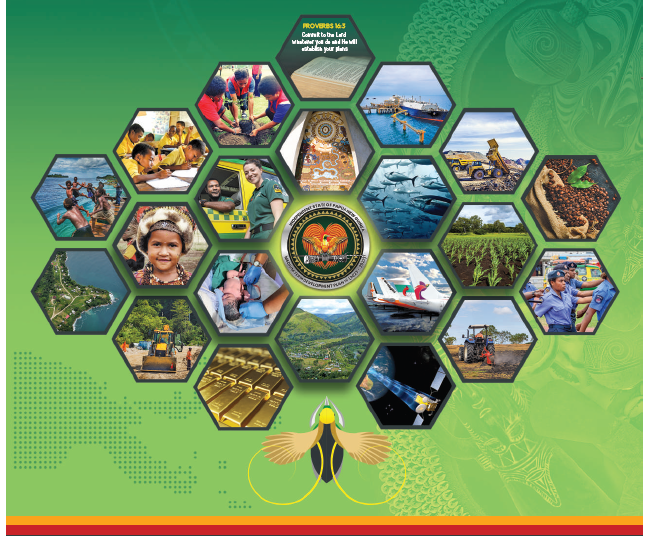
National Prosperity through Growing the Economy Click here to download pdf file. http://www.pngruralsociety.org/wp-content/uploads/2024/02/MTDP-IV-2023-2027_compressed.pdf

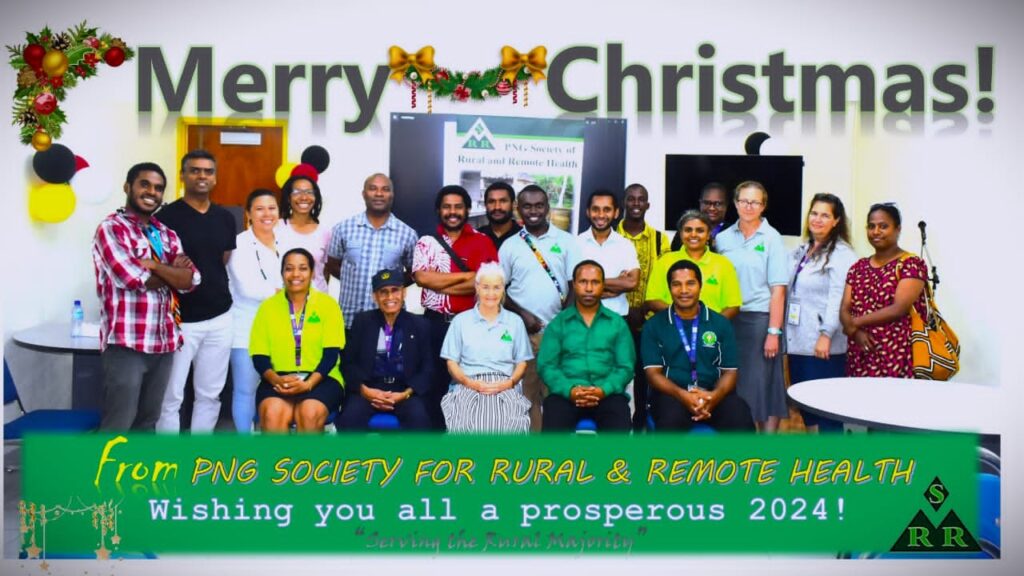
July 27th – 28th 2023 saw the PNG Society for Rural and Remote Health executives convene for a strategic planning meeting. As this executive’s term comes to an end this September, they had identified the need for a distinct vision and clear road map to guide future executives to achieve that vision.
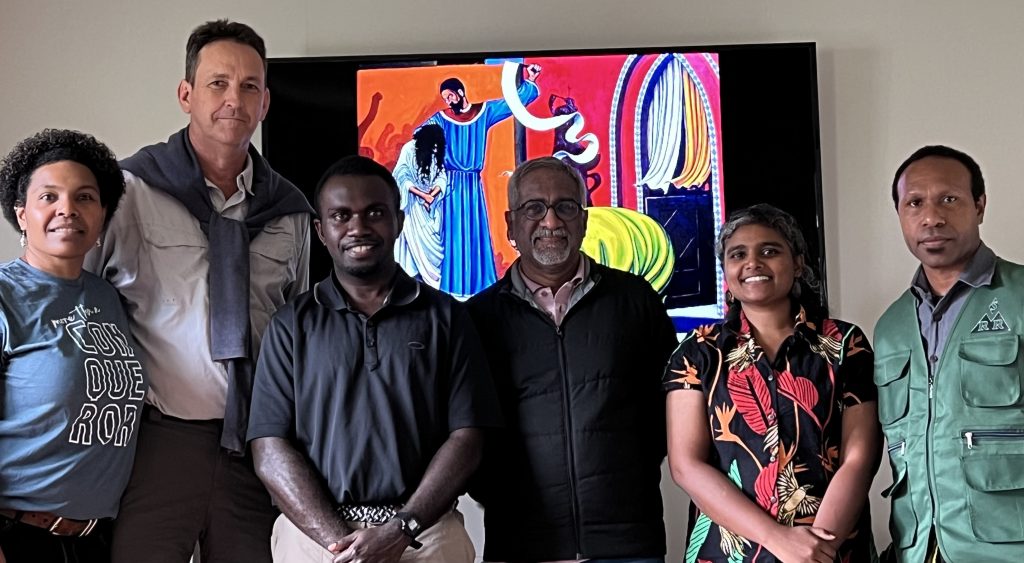
The Society was created in 2009 and for the next 10 years the same president, founder Dr David Mills, was re-elected every 2 years. This provided for continuity, stability, and growth. However, since 2019 the executive leadership has changed twice.
The Society has also grown greater than an annual continuing medical education conference for its members, the need for this road map became inherently obvious. Each executive term is only 2 years which created hurdles in starting a project and not necessarily see its completion.
The PNG Society for Rural and Remote Health has over the past 14 years established itself as a professional society and has seen the need to expand our work more dynamically in other areas as mandated through our constitution.
Looking towards the future we hope to further develop our advocacy and awareness arms to boldly drive for quality health service in rural areas and spotlight rural health issues at local and national levels, to the public and the government. We want to continue to nurture our members through providing continuing learning and improvement conferences or platforms, and creating arenas of community, encouragement, and support.
To achieve all this a plan was needed and is now here!
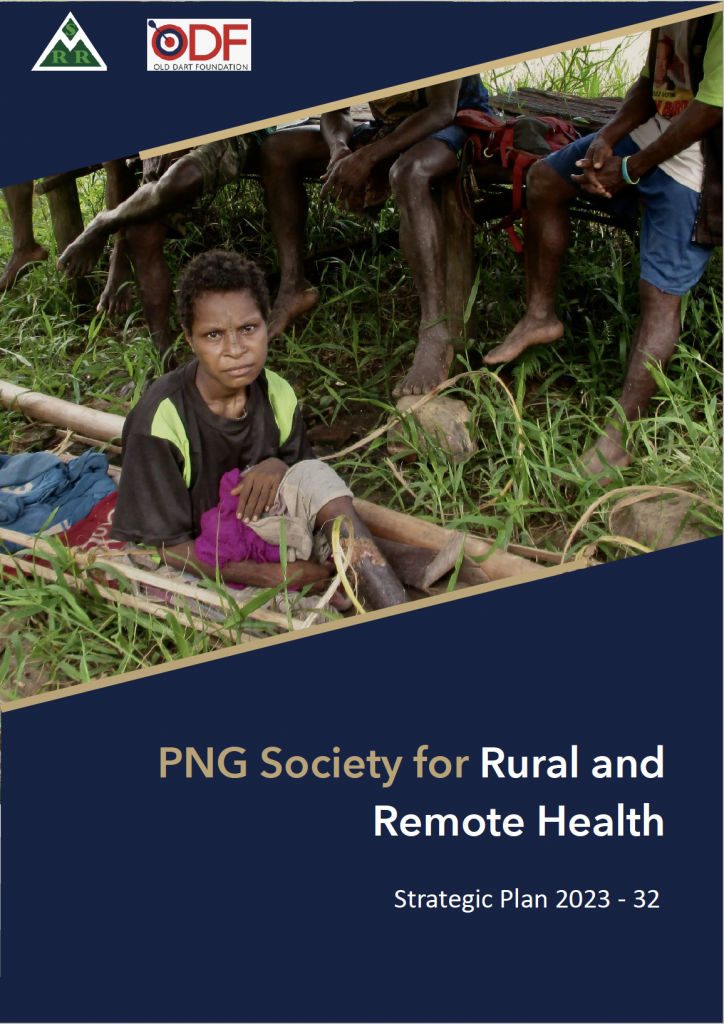
July 11th this year the Rural School branch of the School of Medicine and Health Science (UPNG) was officially launched. The Rural School is incorporated as part of the Kompiam District Hospital in Enga. Sitting down with Dr David Mills later that month he shared how this dream of a medical school based at a rural health facility began 6 or 7 years ago. He had set aside some land and proposed the project to the dean of the School of Medicine and Health Science, UPNG. However, it took some time and after about 4 years of planning then 2 years of construction the rural school was formally opened.
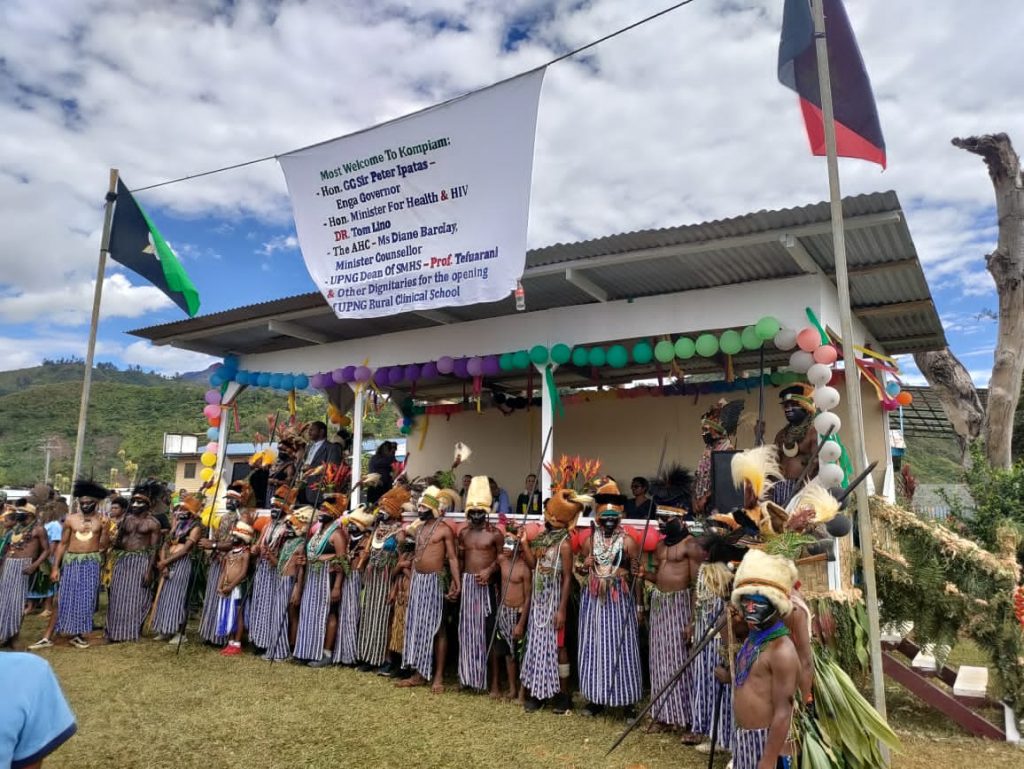
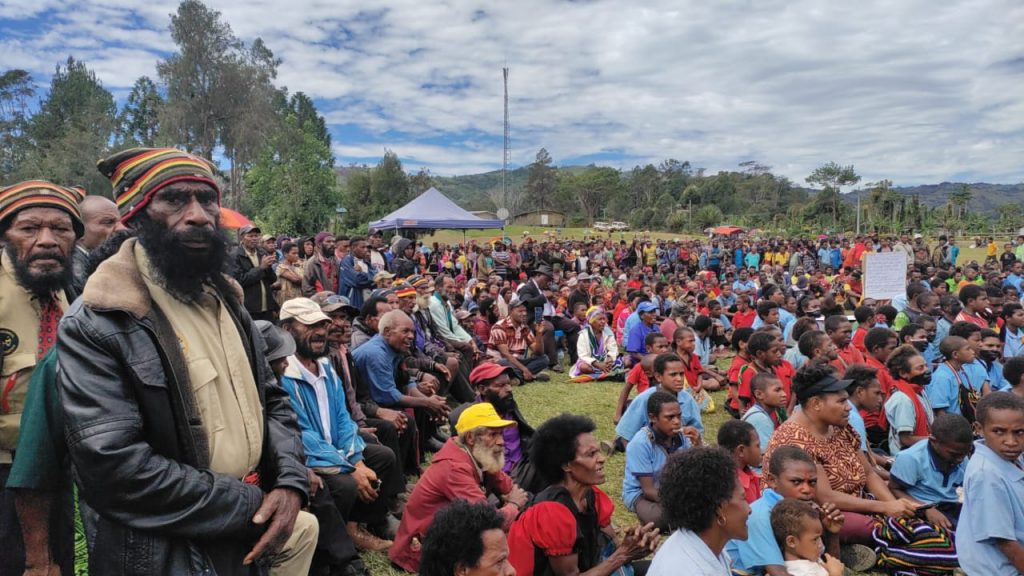
The first group of 8 students arrived in June to complete the remaining components of their final year of medical school. These last two components of their training consist of Maternal and Child Health as well as Rural Health. Their colleagues remain in Port Moresby at the Medical Faculty, Taurama Campus. For these 7 students being situated at Kompiam already fulfils the ‘rural health’ component and the maternal plus child health module will be completed through rural patrols to neighbouring health centres as well as participating in the well-baby and maternal health static clinic at the Kompiam Hospital.
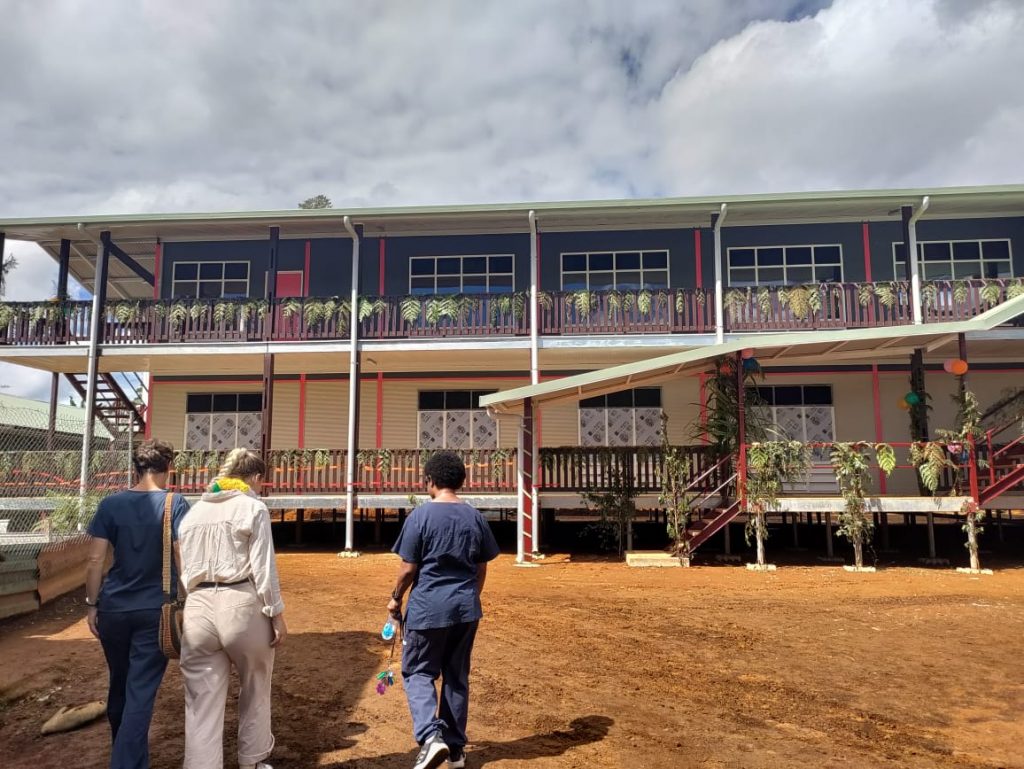
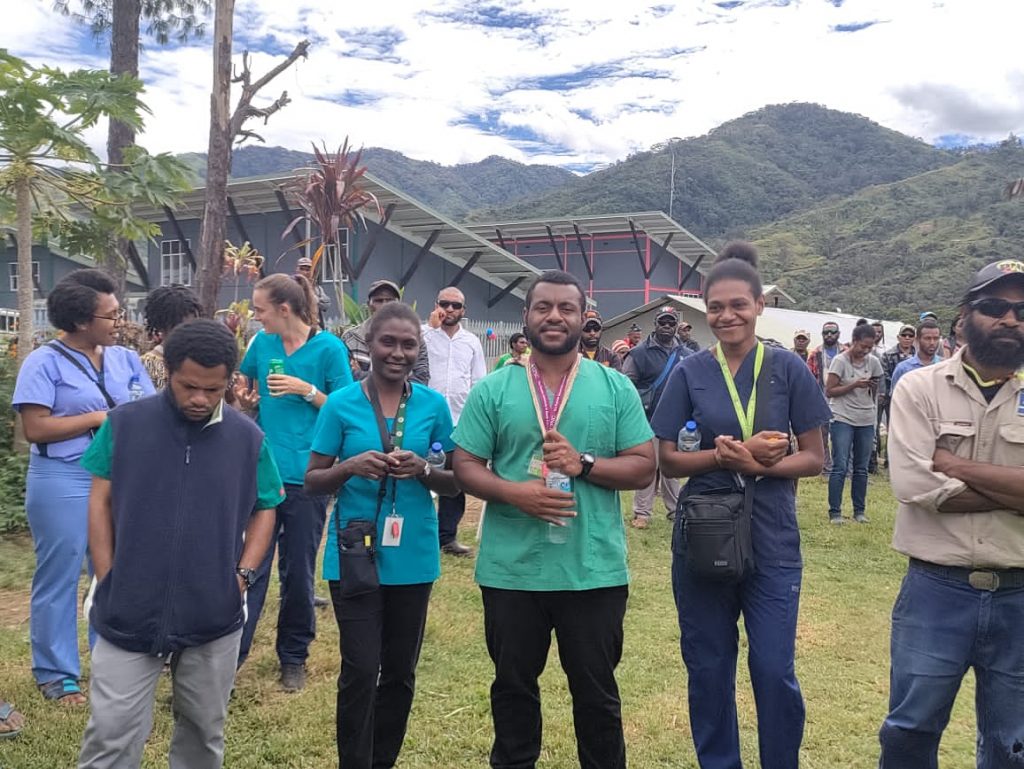
The students were not chosen at random, but each requested to go and were selected from the multiple essay applications. 2024 will see the first group of 5th year medical students who will complete the entirety of their final year of medical training at the rural school. Much like the traditional schooling format the students have access to didactic teaching as well as the classroom experience however this will now be provided via Wi-Fi from the Medical Faculty. They will have the same classes and teaching as their colleagues but instead of urban clinics and PMGH based medicine these students will experience and contribute to the health and wellbeing of the rural population of Kompiam district. They will learn what rural health in Papua New Guinea actually comprises of, and see the strength of will and resourcefulness that is required to provide quality health care to all our people of Papua New Guinea.
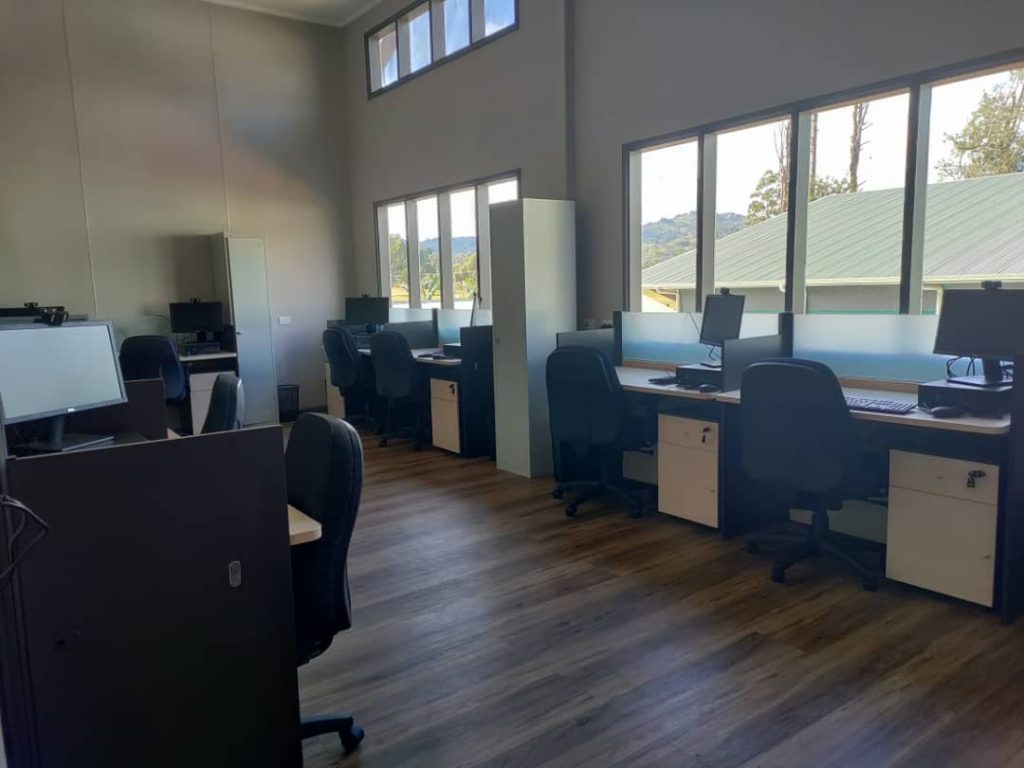
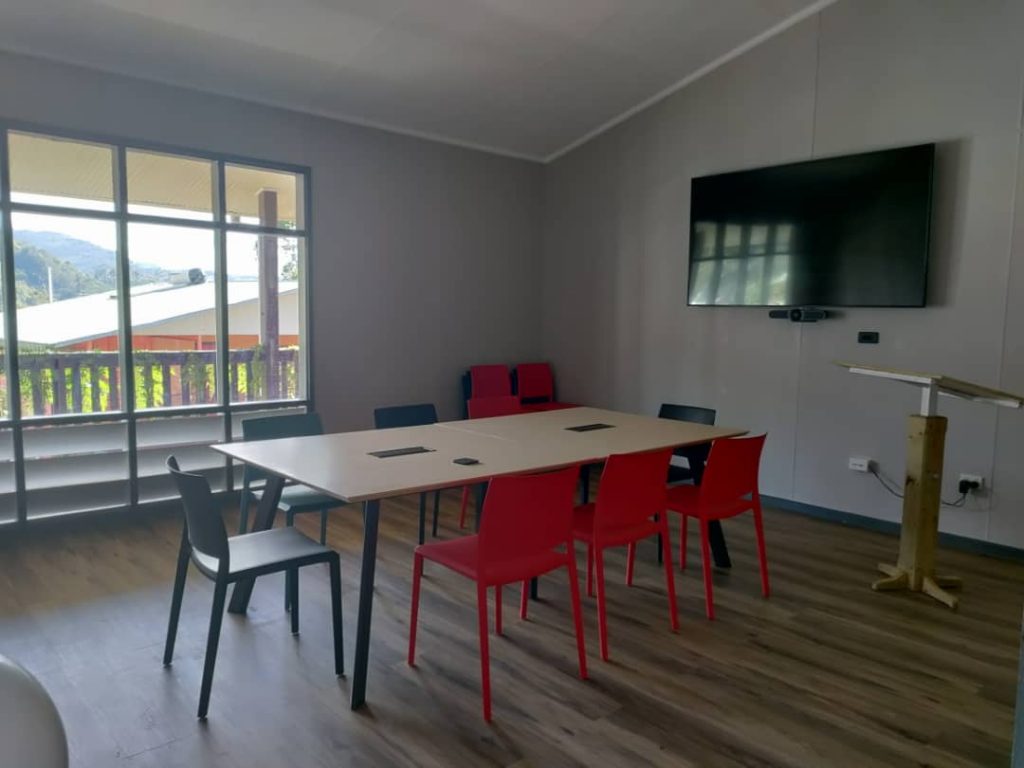
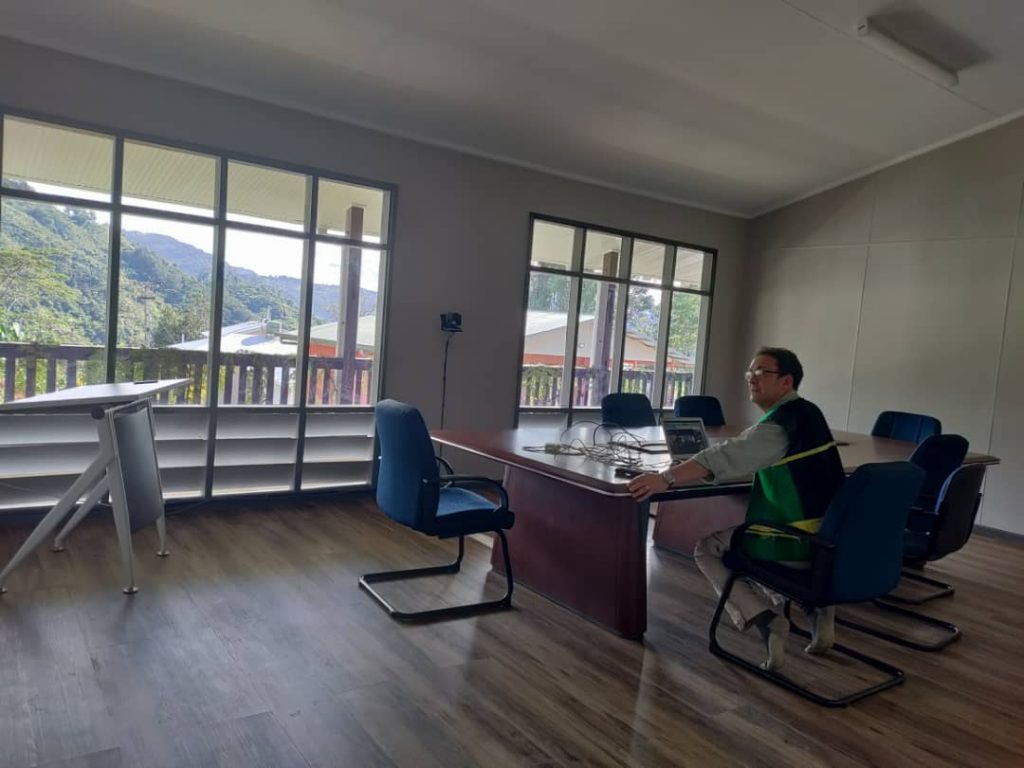
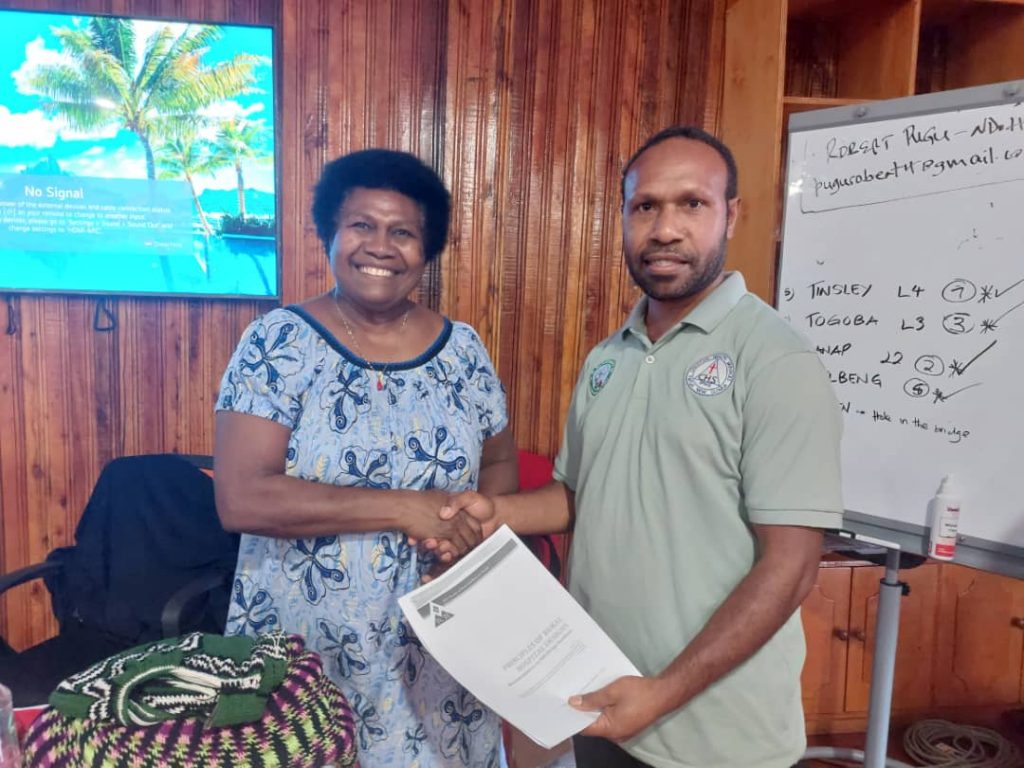
In 2022 PNG Rural and Remote Health Society annual symposium theme was Rural Hospital Design – Should There Be A Minimum Standard?
The symposium which took place in September last year had speakers from various rural hospitals throughout the country share their experience of their individual hospital design successes, flaws and lessons learnt. The islands perspective was shared by Dr Siaol Panta based on Misima Island, the highlands view from Dr David Mills of Kompiam and the coastal insight from Dr Valerie Archer based at Kapuna. Dr Ambrose Kwaramb, the Manager for Building and Facility Standards of the National Department of Health opened the meeting giving the national position in terms of healthcare facilities infrastructure standard, planning, design, delivery and sustainability. We gleaned an international viewpoint from guest speaker Dr John Oomen, the medical superintendent of Christian Hospital Bissamcuttack and his 30yrs experience working in the rural and remote communities in India.
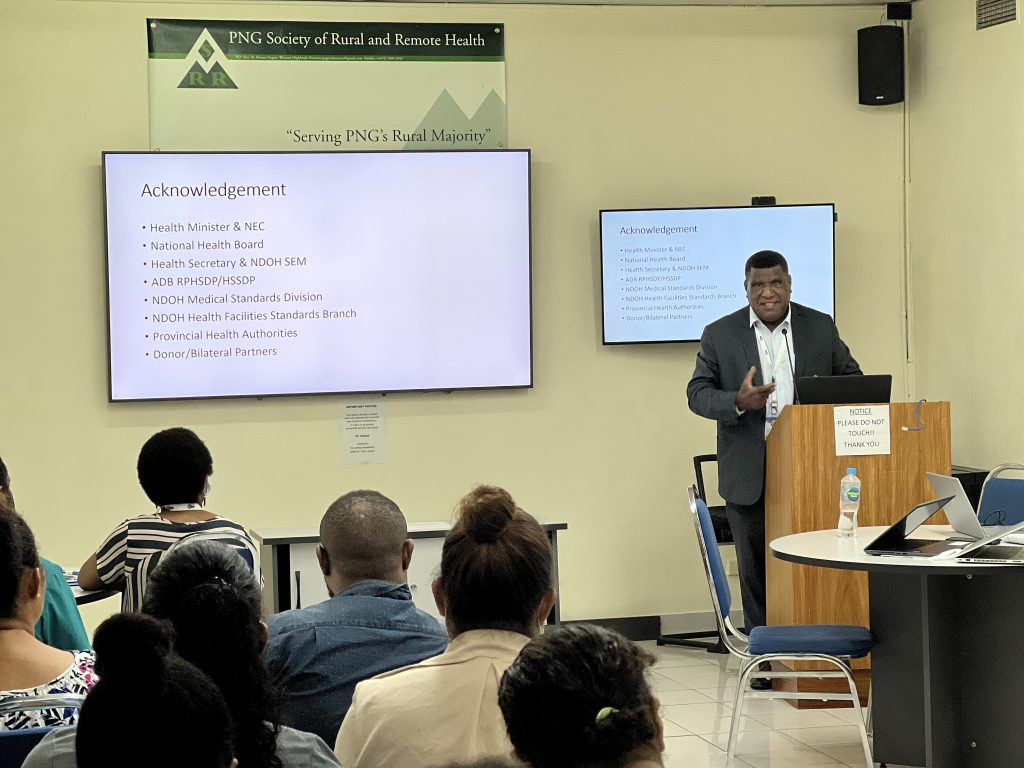
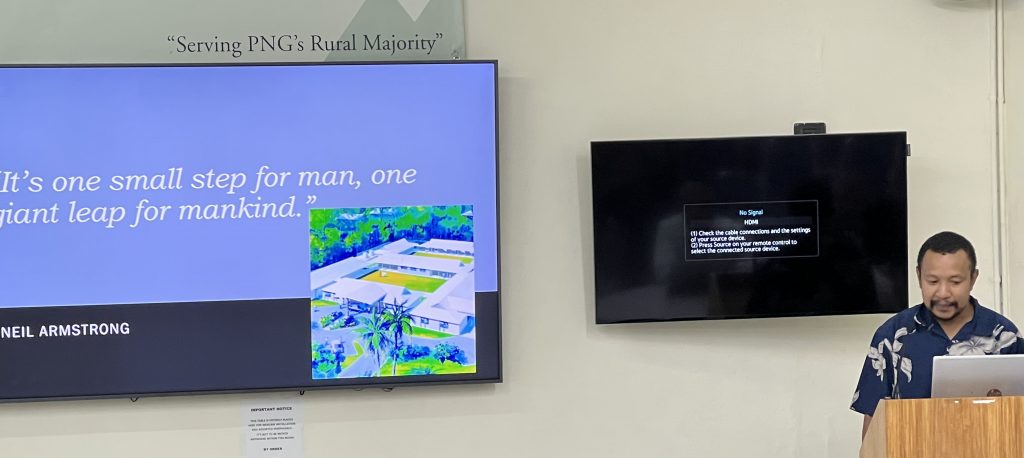
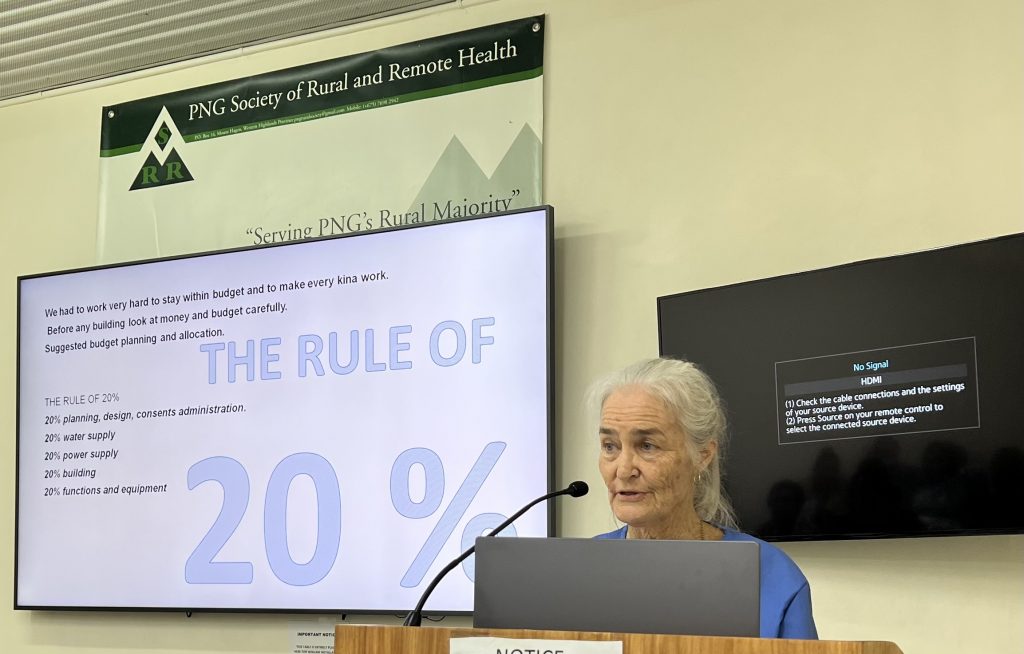
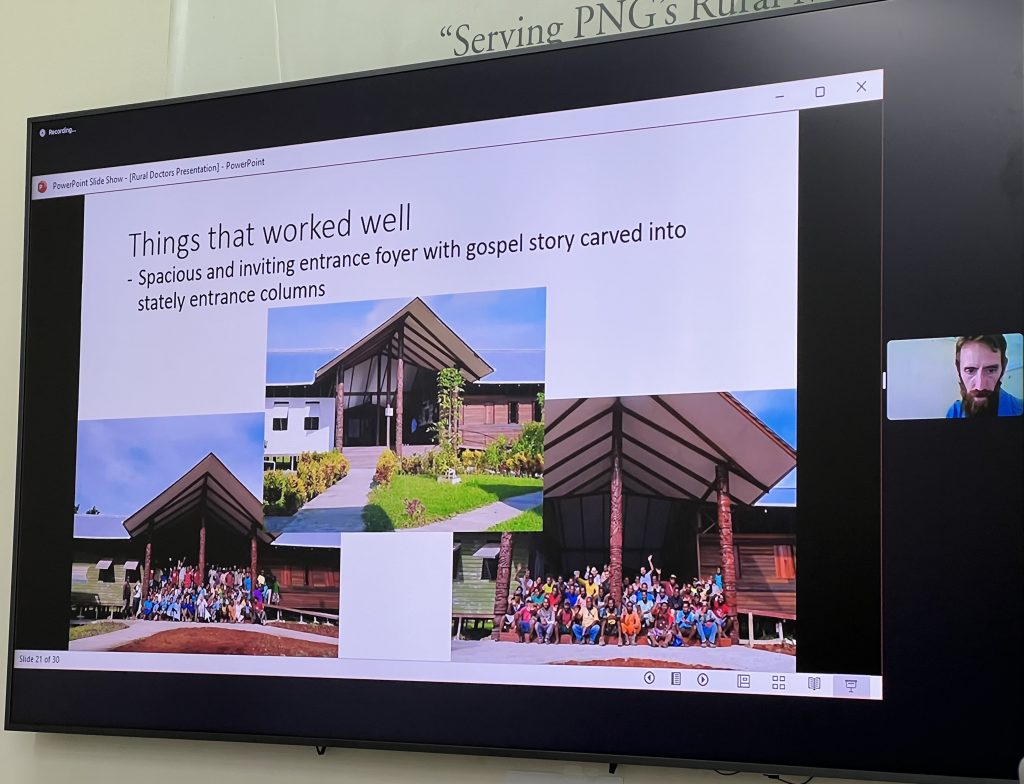
These talks set the stage for the interactive discussion between the society members as well as the non-members who were themselves past or current practitioners in rural hospitals; as to what is and how should a rural hospital in Papua New Guinea be designed. These thoughts were complied into – Principles of Rural Hospital Design, Recommendations on NHS Design Standards, and presented to Dr Lenturut of the National Department of Health on 2nd June during the National Health Service Standards conference in Mt Hagen.
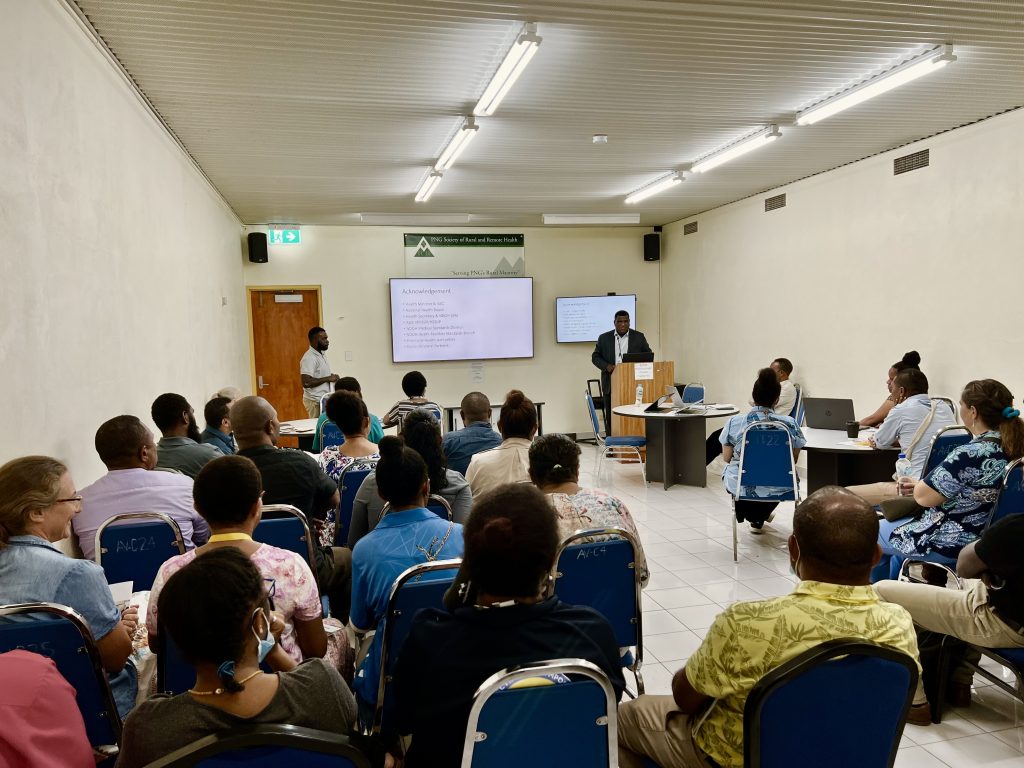
When Dr Kiafuli, president of the PNG Society for Rural and Remote Health, was invited to speak at the Christian Health Services Annual General Assembly on 27th April 2023 he used the opportunity to introduce initiatives to engage and retain doctors to the rural and district hospitals. Many of the health facilities operated by the Christian Health Services member organisations are in rural and remote areas of Papua New Guinea. They all know the struggle it is to recruit let alone keep a doctor in their health facilities.
With the CHS recently being incorporated into the government Alesco payroll system Dr Kiafuli stressed that key factors for doctors serving in rural facilities was more than money. Although a salary and benefits package offered to be on par with their public sector colleagues was helpful to retain the doctor for the long term factors such as:
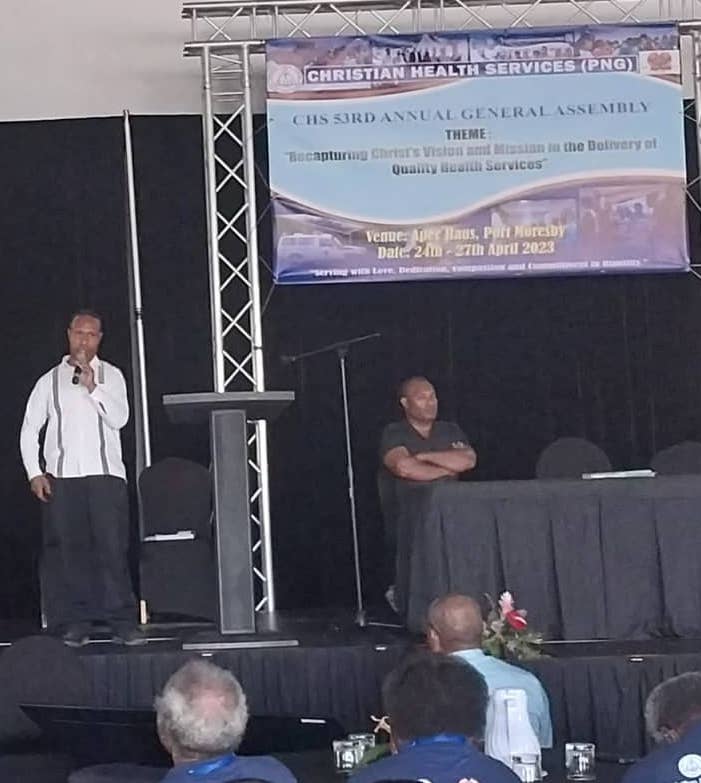
In Dr Kiafuli’s own words he summarised it thus:
“In a scoping review of various qualitative studies conducted all around the world, four themes are identified as primary factors that promote recruitment and retention of doctors in the rural areas.
Some doctors may serve in rural hospitals but will choose against take the Rural Medicine course offered in UPNG. It is entirely up to them, and the respective employer can formally agree to sponsor for other course per individual doctors’ preference. Sponsoring doctors for in-person courses offered internationally carries the disadvantage of the doctor being absent from the hospital for 1 – 2 years.
Personal Satisfaction. Although not uniformly reported as a motivating factor, observations have been made that doctors that feels respected and appreciated by the community, hospital team and the respective management, will be satisfied with the social environment of the workplace.
Dr Kiafuli then identified ways in which these recruitment and retention factors could be implemented right now in Papua New Guinea today, titled Way Forward
Way Forward
At the recent Christian Health Services PNG General Assembly that ended on April 27th Dr Kevin Pondikou of Rumginae Rural Hospital, had the opportunity to give a gift to the Minister for Health Dr Lino Tom. The gift, a beautiful Gogodala paddle, had been itself bestowed on Dr Pondikou in recognition of his service and appreciation for his visit to Balimo District Hospital. Dr Pondikou in turn in appreciation presented it to Dr Tom in recognition of the road he built to Maramuni.
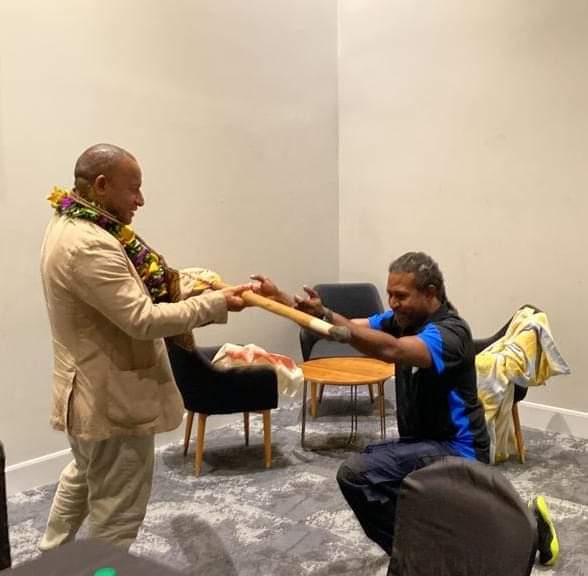
Dr Pondikou recounts his encounter with Maramuni:
Presenting my gift of a Gogodala Paddle, which Dr Kaupa Mukale Karl had entrusted to me care for. I was the first Doctor to visit Balimo ECPNG District Hospital in 25years together with my the Resident Medical Officer Dr Kaupa, to the Honourable Minister for Health Dr Lino Tom.
Many years ago it was a weekend and I was in Rughaz when I recieved a phone call from Maramuni regarding a patient. I asked where the nearest hospital was they said it was Wabag but there weren’t any roads.
Then one day many years later I saw a post by Dr Lino saying that he would make a road to Maramuni.
I didn’t hear anything more regarding the road until some time later there was a post which was a video of him driving to Maramuni which blew my mind.
In appreciation of this wonder, I had the opportunity to meet him and presented him with a basket and this Gogodala Paddle .
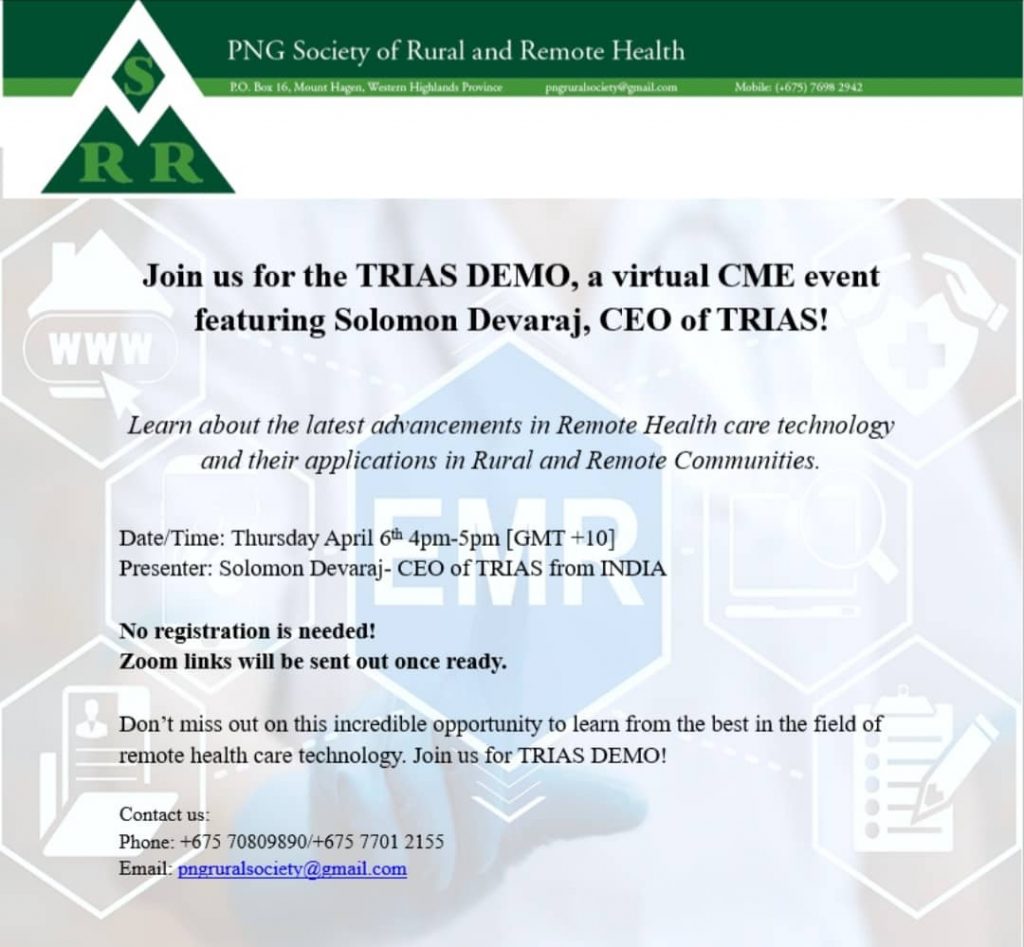
TRIAS is a new Electronic Medical Records system that is being used at Kompiam District Hospital. I believe most, if not all Rural Hospitals do not yet have an electronic system.
In this session, a demo will be done by the founder himself on the TRIAS application. It’s you the rural doctors who will really assess and recommend or not recommend for your respective hospitals. The aim of the PNG Rural/Remote Society is to encourage two or three other hospitals to trial TRIAS and see if it is workable, or if it is a system that can be used in all rural hospitals. I encourage all rural doctors to please attend the virtual demo session. We are the voice of rural health, and that includes recommending new medical technologies to rural areas.
The Christian Health services are looking into TRIAS with great interest and our input will really help in decision-making. So please do attend and together we can influence decision-making to advance rural health services.
Cheers all
Hogande
President, PNG SRRH
Join Dr Yohang as he reviews the good, not so good and areas we can do better in our UPNG Rural Placement Programs. Are we making the impact we are hoping for? Is there lasting change?
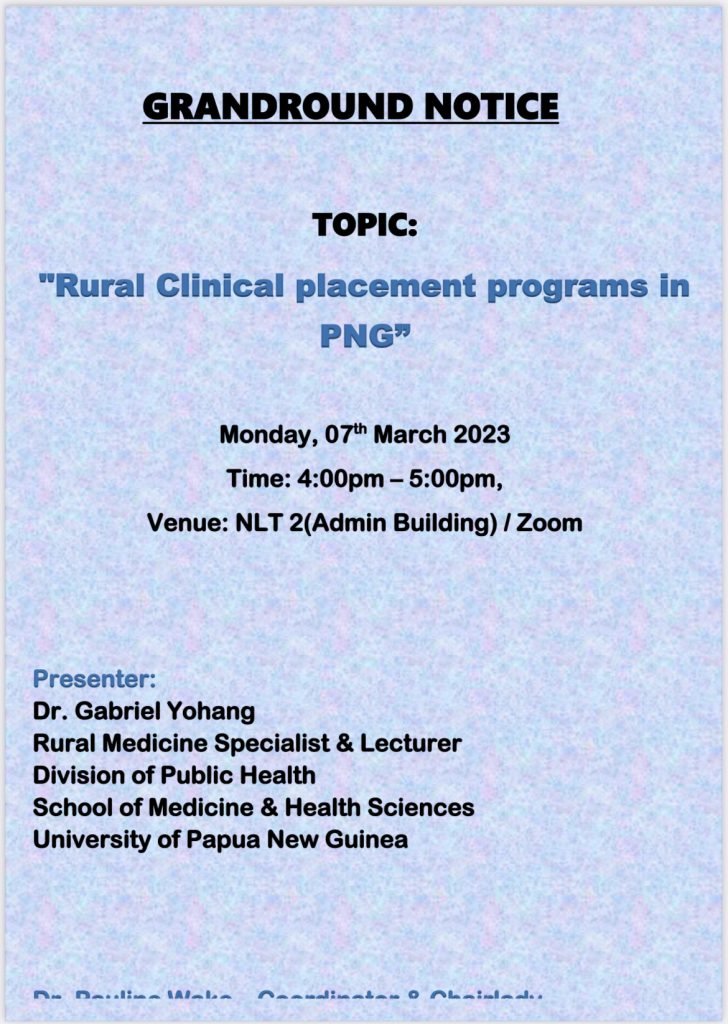
Join via Zoom:
Meeting ID: 986 4187 5606
Passcode: 680192
The winner of 2022 ICMDA Dignity and Right to Health Award is Dr David Mills.
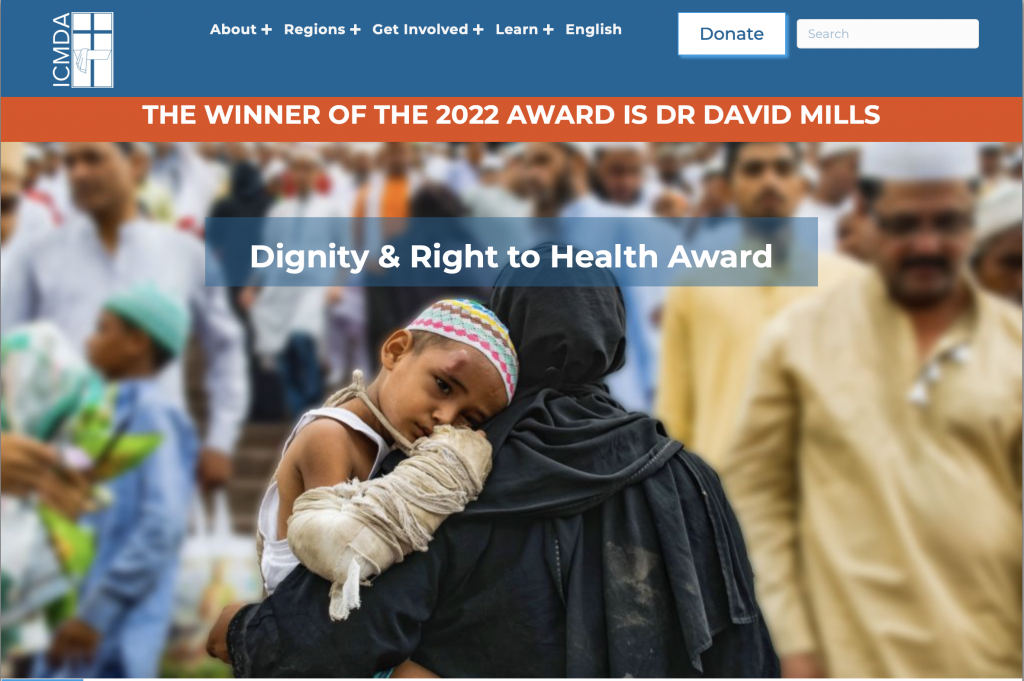
This achievement is nothing short of spectacular and we, the PNG Society for Rural and Remote Health, believe Dr Mills to be a very worthy recipient.
23 years ago David Mills with his wife Karina and their family moved to Kompiam, a remote region of Enga province in Papua New Guinea. They came to work at the neglected district hospital. Seeing the deficits in healthcare provision in the rural areas of Papua New Guinea. Their persistence to provide faithful indiscriminately quality healthcare and education to their local community and their wider district in the face of tribal conflict and personal hardships has earned the Mills much respect locally, nationally and now internationally.
David Mills had a vision to change the landscape of rural health practice by training physicians with the skills needed to practice and thrive in the rural and remote regions of Papua New Guinea. Through the University of Papua New Guinea the Masters in Rural Medicine program was developed; specifically curated to cultivate a physician to work and provide an impactful and sustainable service through stellar healthcare knowledge and skills, topped with leadership, management and basic infrastructure know-how in their tool belt too. This specialist medical training program has planted the seeds of change that we hope will bear fruit for many years to come to change the landscape of rural health provision in our country to be that of quality, accessibility and vibrancy.
Dr David Mills is also the founder and visionary of this very society!
We commend the International Christian Medical and Dental Association (ICMDA) for recognising the outstanding contribution David Mills has made to healthcare in Papua New Guinea. It is a well deserved!
The mission of ICMDA is to start and strengthen national Christian medical and dental movements. Learn more about ICMDA.